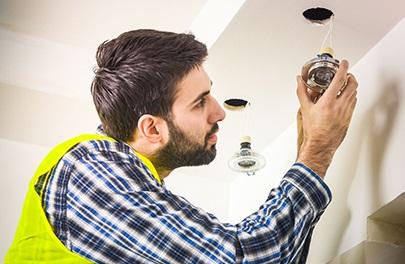Steps to Consider Before Security Camera Installation

Security
camera installation service involves the
professional installation of surveillance cameras and associated equipment to
enhance the security and monitoring capabilities of residential, commercial, or
industrial properties. Installing security cameras is an effective way to deter
potential intruders, monitor activities, and provide evidence in case of any security
incidents or breaches.
Here are the typical steps involved in a security camera
installation service:
Site
Assessment: The service provider will visit the
property to assess the areas that require surveillance coverage. They will
identify vulnerable entry points, critical areas, and blind spots that need to
be monitored.
Camera
Selection: Based on the site assessment and the
client's specific security needs, the service provider will recommend suitable
security camera models. This may include indoor cameras, outdoor cameras, dome
cameras, bullet cameras, PTZ (pan-tilt-zoom) cameras, or specialized cameras
for specific applications.
Camera
Placement: The service provider will strategically
determine the optimal locations for each camera to achieve maximum coverage.
They will consider factors such as camera angle, field of view, and focal
length.
Wiring
and Power Supply: Depending on the camera type and
the property's layout, the service provider will install necessary wiring and
power supply to connect the cameras to the recording system and power source.
Mounting
and Installation: The security cameras will be
securely mounted at the designated locations, ensuring they are properly
aligned and positioned for effective surveillance.
Network
Setup: If the cameras are IP-based (Internet
Protocol), the service provider will configure the network settings to enable
remote access and monitoring through smartphones or computers.
Recording
System Setup: For larger installations, a Network
Video Recorder (NVR) or Digital Video Recorder (DVR) may be installed to record
and store footage from the cameras.
Testing
and Calibration: Once the installation is complete,
the service provider will test each camera to ensure they are functioning
correctly and are capturing clear video footage.
Remote
Access Configuration: If desired, the service
provider will set up remote access for the client, allowing them to view the
camera feeds from anywhere with an internet connection.
User
Training: The service provider may provide training
to the client on how to use the security camera system, including accessing
footage, adjusting settings, and troubleshooting common issues.
Maintenance
and Support: Some service providers offer
maintenance packages to ensure the security camera system continues to function
optimally. This may include periodic inspections, software updates, and camera
adjustments.
A professional security camera installation service ensures that the cameras are
installed correctly, the system functions as intended, and the client has a
reliable and effective surveillance solution to protect their property. It's
essential to hire qualified and experienced technicians for security camera
installation to ensure proper setup, functionality, and adherence to privacy
and legal considerations.
Post Your Ad Here
Comments